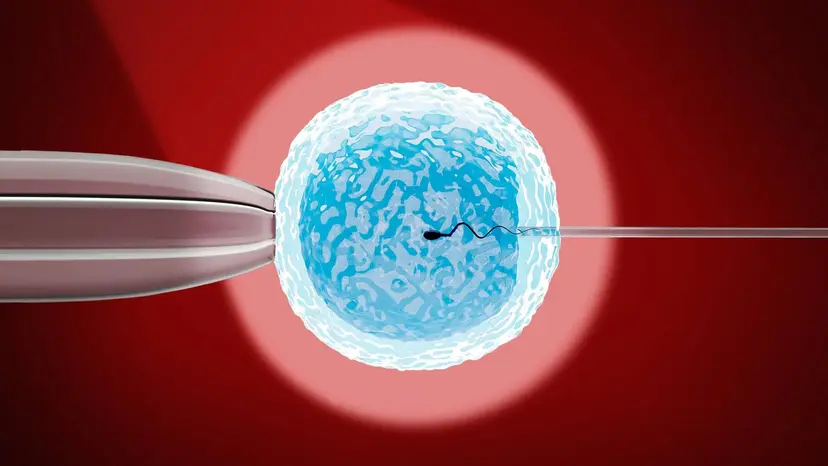Contents
Understanding Anorexia Nervosa
Anorexia nervosa is more than a struggle with food or weight. It's a psychiatric illness that shapes a person’s relationship with their body, emotions, and control. While symptoms often center around food restriction, the roots run much deeper. It affects individuals of all ages, though it’s more common among adolescents and young adults. Despite increased awareness, many still underestimate the complexity and severity of the disorder.
Recovery from anorexia nervosa is not only about restoring physical health. It also involves unlearning harmful beliefs and behaviors developed over time. Many individuals who live with anorexia experience high levels of anxiety, perfectionism, and a fear of change. Understanding this internal experience is critical for designing effective and sustainable treatment.
Untreated, anorexia can lead to serious physical complications including cardiac irregularities, bone density loss, and multi-organ failure. According to the National Institute of Mental Health, anorexia has one of the highest mortality rates among psychiatric disorders. This highlights the urgent need for early intervention and access to structured, compassionate care.

Why Choose Switzerland for Anorexia Treatment
People seeking the best anorexia treatment in Switzerland often look for more than just medical expertise. They want a safe, private space where healing feels possible. Switzerland offers this through its serene environments, high clinical standards, and a reputation for excellence in mental health treatment.
Swiss clinics are globally respected for their multidisciplinary approach. Treatment often involves a coordinated team of psychiatrists, psychotherapists, nutritionists, and general physicians working in close collaboration. This ensures that patients receive holistic support for both their physical and psychological health.
For international patients, Switzerland also provides an added layer of security and confidentiality. Laws in Switzerland strictly protect medical privacy. Many patients appreciate the discretion and the individualized attention, especially when seeking treatment abroad. The setting is tranquil, the services are professional, and the care is personal.
How Anorexia Is Treated in Switzerland
Anorexia nervosa treatment in Switzerland begins with an in-depth evaluation. Clinics perform medical tests, psychological interviews, and nutritional assessments. These help build a full understanding of the individual’s condition, identifying both immediate risks and long-term challenges.
The treatment of anorexia in Switzerland includes three main pillars:
- Medical stabilization, which ensures that the body is safe to begin psychological therapy
- Nutritional rehabilitation, with structured meal planning and careful refeeding protocols
- Psychological therapy, including methods like cognitive behavioral therapy (CBT), dialectical behavior therapy (DBT), and trauma-informed approaches
Clinics pay close attention to each patient’s pace. Forced weight gain or rushed therapy can increase resistance and relapse risk. Instead, Swiss treatment centers build trust gradually, focusing on internal motivation, emotional regulation, and developing new coping strategies. For adolescents, family involvement is often a central part of the process.
Top Clinics for Anorexia Treatment in Switzerland
CALDA Clinic

CALDA Clinic is an award-winning center recognized for its bespoke, one-client-at-a-time treatment model. It received the European Award in Medicine for Best Addiction Treatment Clinic in 2021, and CEO Dr. Oliver Di Paolo was named Best CEO in 2023.
Treatment at CALDA is comprehensive and discreet. Programs are built from scratch based on in-depth diagnostics, covering medical, psychological, and neurobiological domains. Every patient receives daily sessions with licensed experts in psychiatry, internal medicine, and clinical nutrition.
Privacy is a priority. The clinic works exclusively with one client at a time, making it ideal for individuals who need full confidentiality and an uninterrupted focus on healing.
Clinic Les Alpes

Clinic Les Alpes is a leading inpatient treatment center known for its expertise in eating disorders, including anorexia. The clinic treats patients from around the world, offering a blend of medical precision and therapeutic depth.
Treatment starts with a comprehensive 5 to 10-day assessment phase. Once the medical team confirms that the patient is physically stable, a 28-day residential program begins. The clinic focuses on restoring physical health, creating healthy eating routines, and addressing disordered beliefs. Psychological support is provided through one-on-one sessions, group therapy, and family-based approaches.
Patients leave with a structured aftercare plan that includes referrals, relapse prevention strategies, and recommendations for outpatient support. This continuity helps reduce the likelihood of setbacks after discharge.
Klinik Wysshölzli

Klinik Wysshölzli is a specialized psychiatric facility offering care for complex mental health disorders, including anorexia. Their focus is on providing therapeutic consistency within a structured daily routine.
Patients benefit from a calm environment and access to medical staff, psychotherapists, and dietitians. The clinic offers both short-term and long-term programs based on the individual’s treatment goals. Therapy includes nutritional counseling, emotional support, and psychiatric management.
Family sessions and educational workshops are also available, helping to involve loved ones in the recovery process. This enhances patient engagement and contributes to more sustainable outcomes.
Paracelsus Recovery

Paracelsus Recovery offers high-end, individualized treatment for clients seeking privacy and exclusivity. Patients stay in private luxury residences and work closely with a dedicated care team, often receiving one-on-one therapy for several hours daily.
The clinic treats the physical, psychological, and biochemical aspects of anorexia. Extensive lab testing identifies deficiencies and hormonal imbalances caused by malnutrition. Treatment also includes orthomolecular medicine and holistic therapies, tailored to the client’s health profile.
Paracelsus limits its client intake to maintain an intensive focus on each case. This model works well for individuals who need highly personalized, discreet care without the distractions of a group setting.
NEOVIVA

NEOVIVA offers structured residential programs for patients recovering from anorexia and other eating disorders. The clinic's philosophy emphasizes stability, education, and behavior change.
Patients receive daily therapeutic sessions, meal coaching, and medical supervision. The clinic combines evidence-based therapies with supportive community living, which helps patients practice healthier behaviors in a real-world context.
Recovery plans include gradual re-exposure to feared foods, emotion regulation training, and relapse prevention tools. The goal is not only to restore health but also to rebuild confidence and independence in daily life.
BALANCE Rehab Clinic

BALANCE Rehab Clinic provides customized treatment programs for eating disorders, based on the individual’s health needs, goals, and life history. The clinic values collaboration and transparency, involving the patient in each decision about their care.
Their treatment model integrates nutritional rehabilitation with deep emotional work. Patients explore the personal and psychological factors driving their eating disorder.
Additional therapies like mindfulness, art therapy, and somatic experiencing are offered as optional supports. These practices help patients reconnect with their bodies and regulate difficult emotions.
Personalized Recovery Programs for Anorexia Patients
One of the strengths of Swiss clinics is the emphasis on personalized recovery programs. There is no one-size-fits-all solution. Each patient brings a different history, mindset, and set of needs. Treatment plans are built around these specifics.
The personalization process begins at intake. A multi-disciplinary team performs physical evaluations, mental health screenings, and interviews with the patient and, if applicable, their family. These findings shape a customized plan.
Some patients need intensive re-nutrition and medical stabilization. Others are physically healthy but struggle with long-standing beliefs and compulsive behaviors. Tailoring the focus improves engagement and outcomes across all levels of care.
Cost of Anorexia Treatment in Switzerland
The cost of anorexia treatment in Switzerland reflects the quality and intensity of care provided. Prices vary based on clinic type, program duration, and level of service. Most inpatient programs range from CHF 30,000 to CHF 90,000 per month.
Clinics like CALDA and Paracelsus Recovery offer premium services, including private accommodation and 24/7 support. These clinics serve patients who prioritize comfort, privacy, and deep customization.
Patients should ask for detailed cost breakdowns before admission. Many clinics provide estimates that include assessments, therapies, accommodation, and aftercare planning. Payment terms differ but often require full or partial payment upfront.
Aftercare and Long-Term Support After Recovery
Recovery from anorexia does not end at discharge. Aftercare planning is a critical part of every treatment program in Switzerland. It supports the patient as they re-enter daily life and reduces the risk of relapse.
Aftercare may include:
- Weekly outpatient therapy with a psychologist or psychiatrist
- Ongoing nutritional counseling
- Access to support groups or relapse prevention workshops
Some clinics offer virtual check-ins or coordination with local healthcare professionals in the patient’s home country. A written relapse prevention plan is often provided, giving patients tools to handle future challenges.
How to Choose the Right Clinic for Anorexia Treatment in Switzerland

Finding the right clinic for anorexia treatment in Switzerland involves more than comparing price tags or websites. Patients and families should assess clinical credentials, staff expertise, and the therapeutic approach. Clinics must be licensed by the Swiss Federal Office of Public Health.
Another important factor is treatment structure. Facilities that offer personalized care plans, clear protocols for nutritional stabilization, and strong aftercare systems tend to deliver better long-term results.
Patients should feel comfortable asking clinics about past success rates, the qualifications of their staff, and what support is available after discharge. Transparency and communication are signs of a clinic that prioritizes patient well-being.
Why International Patients Prefer Swiss Mental Health Clinics
Switzerland is consistently chosen by international patients for anorexia nervosa treatment because of its world-class reputation. Clinics maintain strict privacy, offer multi-lingual services, and combine clinical excellence with comfort.
Swiss clinics provide everything in one place: medical assessments, therapy, refeeding, and aftercare. This eliminates the need for patients to coordinate between separate providers. It’s efficient, supportive, and centered on healing.
The peaceful environment also plays a big role. Away from daily pressures, patients can focus on themselves without external distractions. For many, this is the first step toward lasting recovery.
Why Choose A-Medical for Arranging Anorexia Treatment in Switzerland
A-Medical specializes in organizing anorexia nervosa treatment in Switzerland for international patients. We match individuals with trusted clinics that align with their clinical needs, personal preferences, and financial plans.
We’ve worked with leading facilities including Clinic Les Alpes, CALDA Clinic, and Paracelsus Recovery, all of which have consistent records of positive outcomes. Our service includes handling medical paperwork, travel coordination, and communication with the clinic before, during, and after treatment.
Patients who contact A-Medical often ask about real success stories. Many of our clients have completed treatment in Switzerland and continued their recovery with stable results. We stay in touch to monitor progress and provide guidance, so support never stops after discharge.
If you are considering treatment for anorexia, we’re here to help you take the next step with clarity and care.




